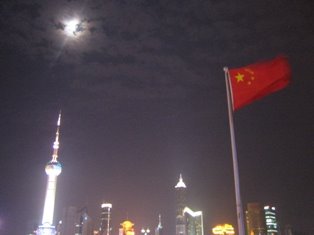Maiden kilpailukyky ja ICT-kyvykkyys
WEF:n Global Information Technology Report 2005-2006 arvioi 115 kilpailijan joukosta seuraavia asioita:
- the environment for ICT offered by a given country or community
- the readiness of the community's key stakeholders - individuals, business and governments
- and the usage of ICT among these stakeholders
"...the more successful countries are those in which governments, businesses, and civil society have evolved mechanisms that facilitate consultation and cooperation, and which lead to giving a high priority to boosting education and training. A central element of this is the ability to harness the potential of information and communication technologies (ICT) to leverage the development process. Future prosperity seems increasingly to be as much a function of investment in human capital and the technologies that will enhance productivity, as it is of investment in physical capital and infrastructure."
TOP 5: USA, Singapore, Tanska, Islanti, Suomi
Intia sijalla 40, Kiina 50, Brasilia 52, Nigeria 90.
Miksi Nigeria? Afrikan väkirikkain maa (130 miljoonaa), paljon luonnonvaroja.
Näin sanoo (lagoslaisen This Day lehden mukaan) Shanghaissa työskentelevä Intelin edustaja joka haluaa laittaa peliin miljardi dollaria jotta miljardi ihmistä kehitysmaissa pääsisi internetin äärelle "Intel General Manager Emerging Markets, Mark Beckford,has tipped Nigeria as the next China in the third world's gradual movement into the global technology highroad. This is inspite of the many headaches and cross currents on the political and economic fronts of the nation... Beckford who restated Intel's commitment to bridge the digital gap in the third world through its World Ahead programme posited during the presentation, that what is happening today at the (Lagos) computer village may hold the key to the country's future. "We believe that the energy and all that is happening at the computer Village at the moment is something that can drive economic growth and personal wealth in Nigeria," he said."
WEF:n Africa Competitiveness Report antaa aihetta miettiä miksi Nigeria olisi nouseva teknologiamaa, koska maa ei saa korkeita lukuja. Ehkä kyseessä on juuri väkiluvun, luonnonvarojen, politiikan ja koulutuksen yhdistelmä josta oikein pelaamalla saataisiin talouteen potkua.
Miksi pohjoismaat ovat aina korkealla WEF:n ICT- ja kilpailukykyvertailuissa? Näin sanoo Augusto Lopez-Claros, WEF Chief Economist:
- highly developed educational institutions which have fostered a strong culture of innovation
- transparency in government which has contributed to the emergence of a friendly climate for new business ventures
- strong predisposition to adopt the latest technologies, both in government, the business community and civil society
- extremely responsible fiscal management means that the state has access to resources to continue to make improvements to the quality of the educational system, to invest in research centres and so on; and these, more and more, are turning out to be key drivers not just of innovation and the adoption of new technologies, but also of growth and efficiency
- because these are relatively small countries, their experiences have considerable relevance for the rest of the world


<< Home